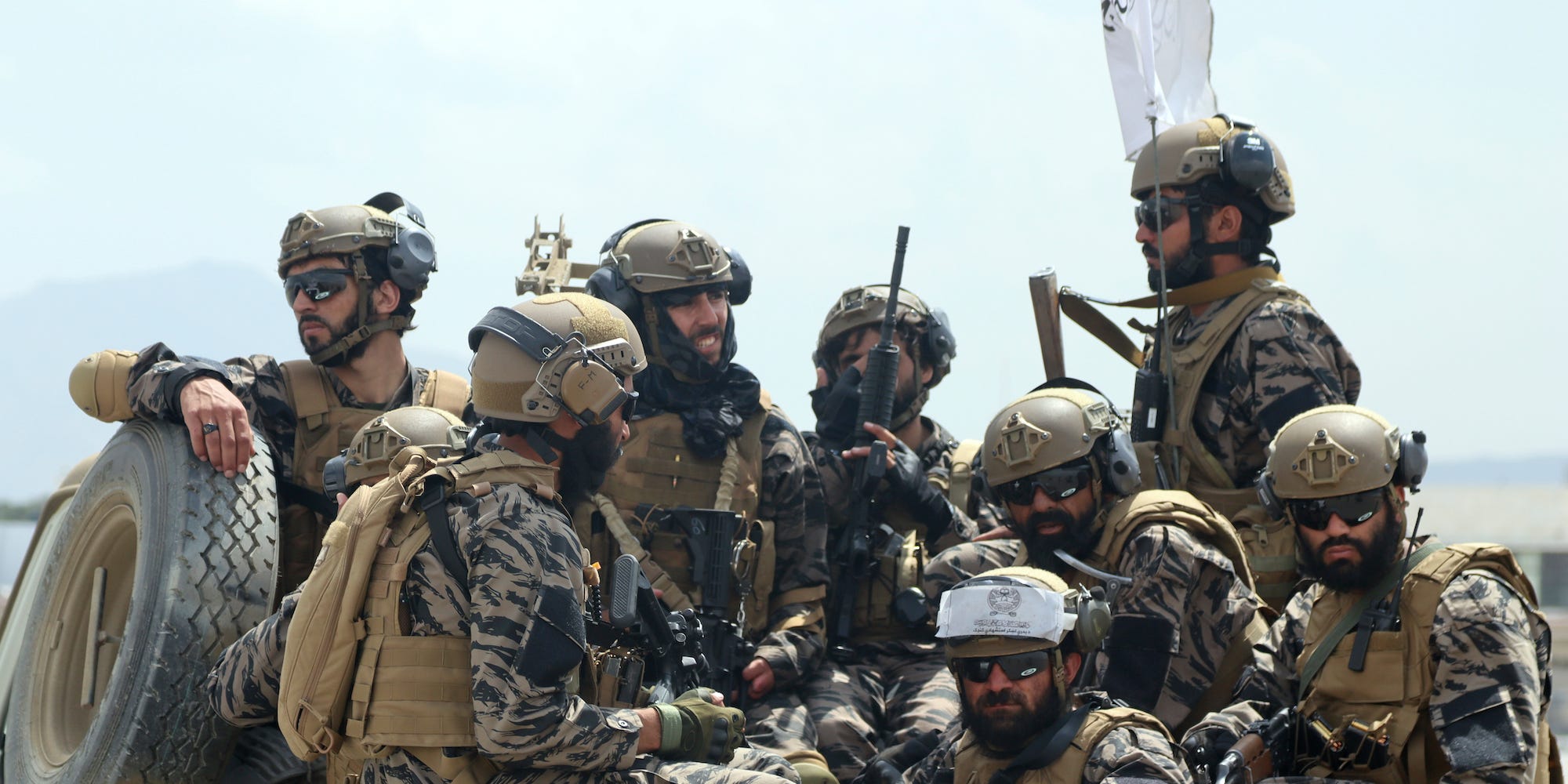
AP Photo/Khwaja Tawfiq Sediqi
- The Taliban's top spokesperson says he wants a "good and diplomatic relationship" with the US.
- "This nation has the right to live in peace, the right to prosperity, and we are the servants of the nation," Zabihullah Mujahid said.
- With the end of the US presence, the Taliban now faces mounting challenges to running the country.
- See more stories on Insider's business page.
The Taliban's spokesperson celebrated the US's military withdrawal from Afghanistan as a "victory" that "belongs to us all," and said the militant group wants to maintain good diplomatic relations with the US, Bloomberg and CNN reported.
The last US Air Force C-17 planes carrying US military and diplomatic personnel still in Afghanistan departed from Kabul's Hamid Karzai International Airport at 11:59 p.m. local time on August 30 – one minute before President Joe Biden's August 31 deadline. Celebratory gunfire from Taliban fighters could be heard ringing through the streets.
"We highlight to every occupier that whoever sees Afghanistan with an evil eye will face the same fate as the Americans have faced," Zabihullah Mujahid told reporters. He added that he hopes the Taliban will continue to have "a good and diplomatic relationship" with the US, according to Bloomberg.
"We've never given up to pressure or force, and our nation has always sought freedom," Mujahid said.
Monday's departure marked an end of a nearly 20-year American military presence in Afghanistan that started shortly after the attacks on September 11, 2001, and was punctuated by a frantic effort to evacuate thousands of US citizens and Afghan allies in its final weeks. The US State Department reported that over 122,000 people had been evacuated from Afghanistan since the end of July. Thousands of Afghan allies, however, were left behind as were fewer than 250 Americans, NBC News reported.
Mujahid also said that he hoped Taliban fighters "would treat the people nicely," CNN reported.
"This nation has the right to live in peace, the right to prosperity, and we are the servants of the nation not, God forbid, that we are dominant over the nation," he said, according to CNN. "I am praising your sacrifices; I thank you and I congratulate you."
Despite the celebratory mood, the Taliban, which has branded the country as the Islamic Emirate of Afghanistan, now faces mounting challenges to governing Afghans and building diplomatic relations with nations it'll depend on for support and aid.
First among those challenges is fully securing and restoring operations at Hamid Karzai International Airport, Bloomberg said. The Taliban is rivals with ISIS-K, the regional affiliate of the Islamic State that carried out the deadly August 26 suicide bombing at the airport that killed 13 US service members and around 170 Afghan civilians.
The Taliban, which finds itself cut off from many sources of money and international aid, also faces a tough path to managing the country's finances and ensuring a basic functioning economy, with Bloomberg reporting on scenes of Afghans struggling to get their money out of banks and facing spiking prices for food and other goods.
It also remains to be seen to what extent the Taliban, which observes a strict interpretation of Islam, will allow women to participate in society in public-facing roles, despite its public pledges to lead more moderately compared to when the the group last led the country.

